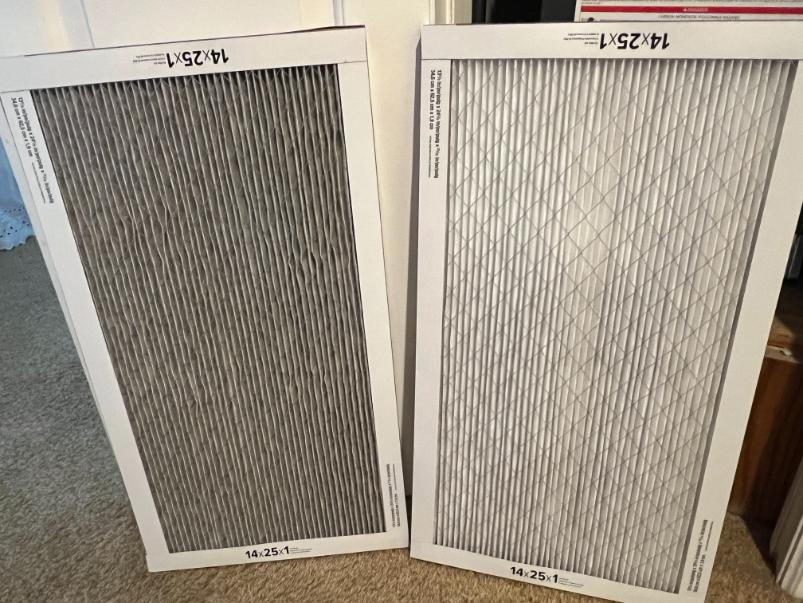The filter on the left is only three months old. The filter on the right is new. Changing out filters for your furnace is an important part of routine maintenance for your home. Not only will you breathe easier, but this also helps to extend the life of your furnace. You don’t have to but the most expensive. You should exchange filters at least once every three months. Once per quarter. Changing your house furnace filters is an often-overlooked yet essential maintenance task that plays a vital role in both the health of your household and the efficiency of your HVAC system. Furnace filters trap dust, allergens, and other airborne particles, preventing them from circulating throughout your home. Regularly changing these filters ensures better air quality, promotes energy efficiency, extends the life of your furnace, and even helps reduce utility costs.
1. Improved Indoor Air Quality
One of the primary functions of a furnace filter is to capture contaminants before they circulate in the air you breathe. Over time, dust, pollen, mold spores, pet dander, and even bacteria can accumulate in the air if not properly filtered out. For households with members who suffer from allergies, asthma, or other respiratory issues, having a clean filter can significantly reduce their symptoms by improving indoor air quality. A dirty filter is less effective at trapping these particles, allowing them to recirculate, which can worsen respiratory issues and overall health.
2. Energy Efficiency and Cost Savings
When furnace filters become clogged with dust and debris, the airflow through the system is restricted. This causes the furnace to work harder to maintain a consistent temperature throughout your home, consuming more energy in the process. Over time, this increased strain leads to higher energy bills and can potentially cause components of your HVAC system to wear out faster. By regularly replacing the filter, you reduce the resistance in the system, allowing air to flow freely and reducing the energy consumption required to heat or cool your home.
Replacing filters also helps avoid unexpected repair costs. A furnace operating under stress due to a clogged filter may overheat, which can lead to damage of other parts, such as the blower motor or heat exchanger. Repairing or replacing these components can be expensive, and in some cases, may result in the premature need for a complete furnace replacement.
3. Extended Furnace Lifespan
Maintaining your furnace filter not only improves its efficiency but also contributes to the longevity of your entire HVAC system. The harder your furnace has to work to push air through a clogged filter, the quicker it wears down. Components like the blower fan are forced to work overtime, leading to more frequent breakdowns and increased wear and tear. Regular filter changes keep your system running smoothly and minimize the likelihood of costly repairs or the premature need to replace the entire furnace. In the long run, this saves you both time and money by prolonging the furnace’s lifespan.
4. Optimal Heating and Cooling Performance
A dirty filter impacts not only the furnace’s efficiency but also its overall performance. Restricted airflow means that some rooms may not receive adequate heating or cooling, leading to inconsistent temperatures throughout your home. This makes the environment less comfortable and forces the system to cycle more frequently, further increasing wear and energy use. A fresh filter allows the furnace to maintain a consistent flow of air, ensuring that your home stays at a comfortable temperature with fewer fluctuations.
5. Environmental Impact
On a larger scale, regularly changing your furnace filters has an environmental impact. When your HVAC system runs inefficiently, it consumes more energy, contributing to higher carbon emissions. By keeping your furnace in peak condition through regular filter changes, you are not only saving on utility bills but also reducing your household’s carbon footprint.
Conclusion
In summary, changing your furnace filters is a simple, cost-effective task that should be incorporated into your regular home maintenance routine. It leads to cleaner air, improved energy efficiency, extended furnace lifespan, and lower energy bills, while also supporting a more sustainable lifestyle. Regular filter changes are a small investment that pay off in terms of health, comfort, and savings, making it one of the most important maintenance tasks for any homeowner.


Recent Comments